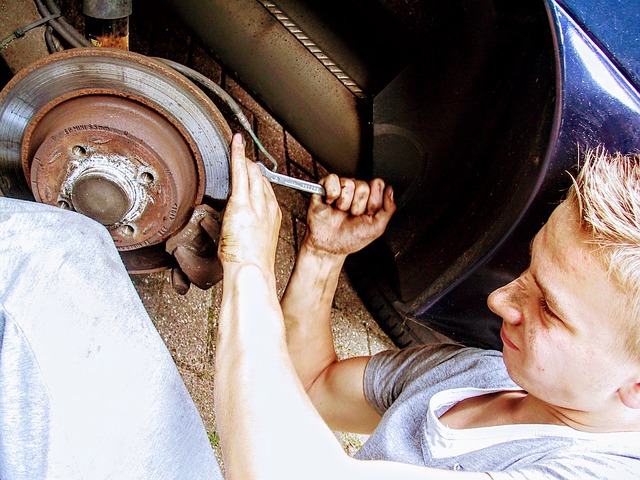Why Young Drivers Are Likely To Pay More In The Long-Run

Despite the fact that they generally have less money than older, more experienced auto owners, young drivers pay proportionately more of their income on car related expenses. There are a lot of factors that play into this. Experience is a big part of it. New drivers don’t fully understand the financial brunt of car ownership and how little decisions and habits play into more exorbitant long-term costs. So, we’re going to look at why if you’re a young driver, you’re likely to pay more than you should but also how you can lower your costs and end with a little more in your pocket.
They don’t look at their credit before buying a car
We’re going to start at the very beginning of a young auto owner’s journey: buying the car. Taking out an auto loan is going to be a lot of people’s first experience of truly understanding how and why their credit is so important. But there are a lot of young adults not checking their credit and jumping into a loan before they do. Taking steps to improve your credit score, such as checking your record for errors, getting rid of existing debts, and making sensible use of your credit cards, can all get you a much better loan on a car. You’ll have lower interest, bigger allowances, and more options.
They don’t shop around for loans
Naturally, those options aren’t going to matter much if you’re not willing to look around for the different loans on offer. First of all, get pre-approved before you buy a car on a loan. It gives you a much more reasonable expectation of what you’ll be able to afford and what your repayment plan is going to look like. Be aware of the implications of the loans you choose, as well. If you can get a big loan on an expensive car, it’s easier to think about what you could do rather than what you should do, which is focusing on a payment plan that’s reasonable and won’t take up more of your income than it should. Pay more attention to the total cost of a loan, too, not just monthly payments. Taking out a big loan over 72 months might break down into easily repaid chunks, but it’s a lot more expensive in the long-term and keeps you financially tied to the car for longer than you should be.
They don’t focus on economics when it comes to car choice
There are a lot of different factors to be attracted by when it comes to choosing a car. Some, like speed and style, have an emotional attractiveness that will distract many buyers. Instead, you should focus on the traits that make a much more economically sound choice. Cars with safety features are going to get you in fewer expensive bumps and collisions. Being aware of how a car’s MPG measures up to city or country driving, depending on where you plan on spending your time in the car, will have a huge impact on how fuel efficient it will really be, too.
They buy their own insurance
If it is at all possible, then young drivers should attempt to get in on a parent or family member’s insurance agreement. High-insurance costs are the biggest reasons that young drivers pay more than more experienced auto owners. For one, there’s the fact that providers consider uninsured drivers a “high-risk”, which can seem like a self-fulfilling prophecy for young drivers. But spending some time on a parent’s plan gives you the prior insurance qualifier that can see you in better deals in future.
They don’t take care of their car as much as they should
When you get your license and your first car, your focus might primarily be on getting used to the road, becoming a more experienced driver, and enjoying the perks of auto ownership. However, if you spend too long without starting to pay attention to car maintenance and even a little DIY repairing, the costs of fixes in the future are soon going to overshadow any of the benefits you thought your car brought you. There’s plenty that every driver should do on a regular basis, from rotating tires and cleaning brake dust to checking the oil levels and engine belts. It will help you spot potential issues a lot sooner, reducing your risk of breaking down and paying for assistance or more serious repairs that will be necessary if damage continues to grow unchecked.
They aren’t picky with their mechanics
It’s easy for a young driver to think that every mechanic is going to be trustworthy, fully qualified, and focused on delivering the best deals. That’s just not true. There are sketchy garages out there that will add on hidden costs, have you paying for “fixes” you don’t need, and will simply not do a good job of it at times. Learning to be picky with your mechanics is an essential skill for drivers. Talk to more experienced, savvy drivers and ask for recommendations. Look at online reviews for mechanics near you. Check that they’re part of the Approved Auto Repair Network or see if they’ve won any other awards in the past. When you need a part replaced, don’t go through the mechanic directly, either. Take a look at the market, find the most cost-effective option you can and compare it to what they’re offering.
They use more fuel
Your fuel costs are going to be most consistent in the short-term. Getting a more fuel-efficient car for the environment you’re most likely to drive in is only the start. You can save more fuel with your driving habits, too. Idling your car for too long as opposed to restarting the engine and accelerating or decelerating too fast are both habits that can make a big impact on your fuel costs over time. Lose those habits and learn more fuel-saving techniques.
They get into accidents more
This isn’t a judgment on the priorities or skills of younger drivers but the data supports that they’re a lot more likely to get into an accident. Again, part of the reason is the fact they’re not as experienced and aware of the dangers on the road. In particular, distracted driving is one of the most age-related accident causes amongst all the potential risks. Young drivers must be taught the importance of maintaining focus on the road. The most pertinent lesson of all is that the car is not a place to socialize. Anyone who wants a ride has to learn the rules of not grabbing the driver’s attention. The other factor of young drivers being less likely to maintain their car as often also feeds into their greater risk on the road.
They don’t prove they’re safer drivers
Some might consider the data supporting the point above to be stereotypical, naming qualities that they, personally, don’t have. If you’re a young driver and you’re highly confident of how responsible and safe you are, you could save money by proving it. In particular, when it comes to renewing or making new insurance deals, you can fit your car with a black box or use a mobile device app that measures how safe your driving is. If you truly are conscientious and sensible as you say you are, it is one of the easiest ways to drastically lower your insurance costs.
They don’t know how to handle accidents
Your first accident or collision is never a pleasant experience. It can also be a very expensive one if you’re not careful. Inexperienced drivers who haven’t learned how to handle an accident often get themselves in a situation where they end up paying a lot more. They need to learn what to do before it happens. For instance, not calling your insurance company or reporting injuries can end up putting you in a compromising position. In some cases, not knowing your rights and when to call auto accident lawyers to make sure that responsibility is properly attributed is just as important. There will be accidents where you should not be obligated to pay a single cent and it’s worth standing up for your rights when that happens. Beyond car repair costs and possible damages from the other side, it can lead to higher insurance premiums in the future if you’re getting blame you don’t deserve.
They get in trouble more often
Learners should and most often do learn a lot about the laws of the road on their way to getting their license. But again, it’s a lack of experience and perhaps a little wisdom that leads to them being more likely to get the most common traffic violations that end up with them seeing more fines. Beyond that, learning to treat police officers with respect, courtesy, and following their instructions when stopped can occasionally get the young driver off with a slap on the wrist rather than a fine.
There are plenty of ways that young drivers can save money on insurance, repairs, their auto loan, and much more. Then again, there’s a lot to be learned above for just about every driver.
Know How to gain weight on Abestfashion






